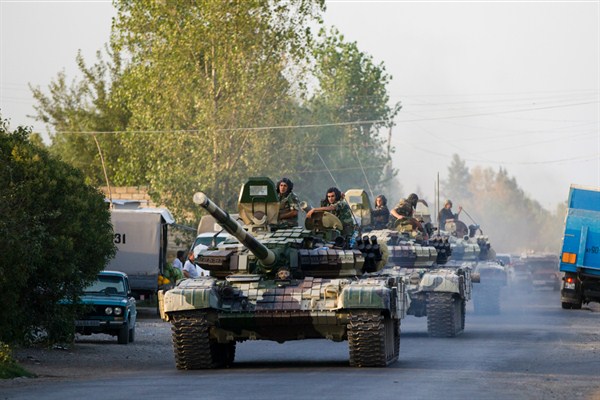After years of “frozen conflict” over the disputed territory of Nagorno-Karabakh, tensions between Armenia and Azerbaijan erupted into brief, full-scale fighting in April 2016. Since then, the two sides have steadily been engaged in isolated attacks with increasingly advanced weaponry. While avoiding open conflict, they remain poised for another bout of combat and appear incapable of resolving their longstanding dispute over the territory, which is controlled by Armenian-backed separatists but still internationally recognized as part of Azerbaijan. In an email interview, Audrey Altstadt, professor of history at the University of Massachusetts, Amherst, and the author of “Frustrated Democracy in Post-Soviet Azerbaijan,” explains the roots of the conflict, how both populations continue to beat the drum of war, and why Russia is the most likely candidate for keeping the peace.
WPR: What is at the heart of the conflict between Armenia and Azerbaijan, and why have the sides been resistant to negotiations and a permanent settlement?
Audrey Altstadt: Both Armenia and Azerbaijan lay claim to the region of Nagorno-Karabakh and consider it historical patrimony and a cradle of culture. Although both sides claim that their possession of the land dates from pre-Islamic and even pre-Christian times, the modern dispute sharpened in the late-19th century, under Czarist rule, when national movements developed among both peoples. The current iteration of the dispute goes back to the 1920s when local Bolshevik authorities created an autonomous region for the Armenian population that was concentrated in the area. At the time, the region was known as the Nagorno-Karabakh Autonomous Region, or NKAR, and was part of Azerbaijan, which gave guarantees of cultural autonomy to Armenians. But Armenians wanted the NKAR to be part of Armenia.

